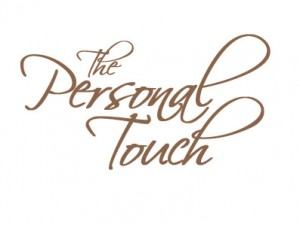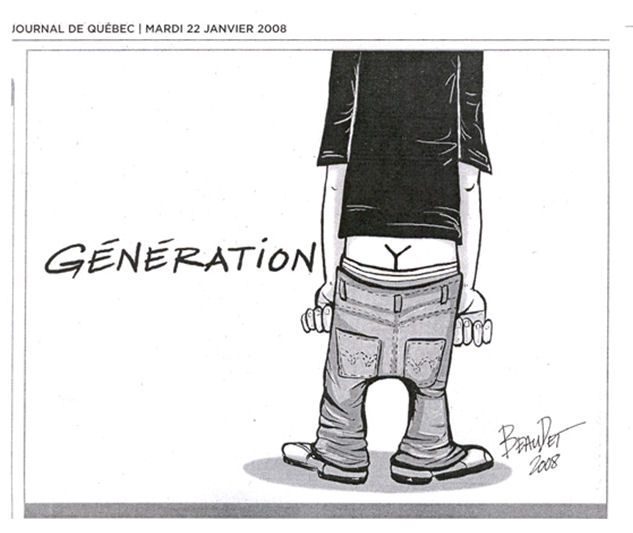“Branding gets personal” is the tagline behind the Myndset (now Mydial). A few people have asked why do I use this tagline? I would like to use this post to discuss, at least partially, why it is so important for me.

Putting the customer at the centre
Being Client Centred. The starting point for “Branding Gets Personal” is an obsession with being client centred. So very often I hear or read about a “client-centric strategy” that seems too far off base to succeed, not to say centred on itself. And with the sway of the internet putting the power closer to the hands of the customer, many “faux” client-centric companies are being outted and, presumably, will see their market share suffer. In the past, companies were taught to focus on the 4 p’s (product, price, place and promotion) as studiously proposed by Philip Kotler (and pioneered by Jerome McCarthy). The emphasis so often remains on the product, its performance, packaging, pricing and publicity — all part of a hardcore left brain (i.e. super rational) affair, with no room for fun or out of the box thinking. While marketing teams must continue to plot their 4 p’s, the real action is in words (i.e. accompanied by the authentic acts) that begin with an e, the marketing of the 5e’s:
emotion, engagement, experience,
exchange & essence
These 5 e’s come on top of the 4 p’s, not in replacement thereof. The task is more complex, rendered all the more so by the rich media multi-channel world in which brands need to communicate. The performance of the product is, of course, vital, but consumers are not satisfied merely with excellent performance and innovation. The “social” component of the product is taking a far greater place, whereby customers are scrutinising the ‘green’ labels, evaluating the ethics of the brand and looking for meaning and signs of humanity. Social Media takes on its full sense in this context as brands learn to develop relationship or conversational marketing. We move from worrying about building and mining the database, to work on building the [customer] fanbase. In short, we have moved from the left-brain Perfection of the 4 p’s to the whole brain Imperfection of the 5 e’s, where typos and lower grade YouTube videos are acceptable providing the message is entertaining, enlightening, surprising or engaging.
 The Personal Touch. The common factor that runs through the 5 e’s is their personal nature. For a customer to experience the brand, wish to exchange, garner true engagement (all the way up to evangelism), feel the essence of the brand or enjoy the emotion of a wonderful surprise, the customer needs to interface with the brand on a personal level. And, this means that the brand must be setting forth a personal message, imbued with a personal touch and bringing to life its personality. The authenticity of this personality then becomes a factor and, as I have written before, transparency becomes a considered trait.
The Personal Touch. The common factor that runs through the 5 e’s is their personal nature. For a customer to experience the brand, wish to exchange, garner true engagement (all the way up to evangelism), feel the essence of the brand or enjoy the emotion of a wonderful surprise, the customer needs to interface with the brand on a personal level. And, this means that the brand must be setting forth a personal message, imbued with a personal touch and bringing to life its personality. The authenticity of this personality then becomes a factor and, as I have written before, transparency becomes a considered trait.

Generation Y : Personally, too private
The personnel wants to be personal, too. Inspired presumably by the youthful Generation Y, a growing number of employees are similarly interested in the emotion, ethics and meaning. When one sees the extreme ease with which the “Facebook” generation is exposing their personal life on line, there is often a major disconnect within a corporation (and its senior management) that is too bent on its image, its professionalism and its quest for perfection. Just as some of the younger generation need to reaffirm the boundary between that which is private and personal, managers need to accept to move from a strictly professional stance to more a personal culture. Brands need to consider seducing, surprising and educating their own staff — particularly if the same staff are to create exceptional experiences for the brand’s customers. As I have written in the past, a strong level of transparency within the company is essential to accompany this “personal” flavoured culture.
In this context, I firmly believe that the Employee is the Brand. He/she is best able to incarnate the values of the brand, to listen to its customers and to transmit the personality of the brand. And even if the current polemic over the levels of privacy (including the internet’s memory) will likely remain a contentious subject for the foreseeable future, there is no reason that brands should not get more personal. The customer is waiting for it. The employees are keen for it. A winning combination if a brand [and its upper management] can figure out how to let go, become a living, breathing organism, comfortable to experiment, make mistakes, live and learn.
What do you think about brands getting personal?
Cartoon Credit: By Marc Beaudet, published in Journal de Québec, Jan 2008











Great post!
Another article that raises the question of the personal part of the corporate world: http://edelmandigital.com/2010/05/27/managing-the….
Now I would ask if brands (I mean the political side of brands corps.) are ready to embrace this movement that you mean: "Brands need to consider seducing, surprising and educating their own staff ".
Excellent comment we all learned the 4 p, without realising that another p for people (staff, customers, suppliers), were all interconnected and more powerful than the 4 p, especially when differentiation gets slim, and distribution revolutionized via the web. When I buy on the web and a human being on the other hand exchanges with me via email or a call, the experience gets emotional and engaging, it becomes the essence of branding ie traveljigsaw, elocationdevoiture.com (rental cars, your should try, good service). 5e plus 4p= satisfied customer prone to loyalty.
I couldn't agree more – and when I was still agency-side, I had the hardest time convincing clients that it needs to be more about the product/brand benefit than the product attribute. You'd be amazed at how many of them just didn't 1) understand the difference, and 2) understand the relevance.
Great post. Back in 2000 I remember sitting down with C-Level managers of a Canadian bank to help them understand the needs of the a corporate web site – their eyes were glazed over by the intra/extranets point of the discussion – all this to say that, again, we are leading change,and have to continue to coarch and teach. To ensure that the brands continue to grow as brands, the upper levels of management will have to trust the sub levels — and that has never been easy.
I fully support Minter's Myndset – and encourage the upper levels to explore what the don't know. Being Linked In – or having a Tweeter address does not necessarily constitute knowing SM.
From an agency point of view – traditional advertising agencies have been trying to fit WEB initiatives into tradional media for years…with limited success. Future successful brands will be led by Digital agencies that have key employees who can marry old school Ps with new school Es.
Hi Minter…and Yendi!
While reading this post I kept nodding inwardly. agreeing with every point, without realizing this was YOUR site, and you, the author of the article. I've always enjoyed clicking on (and subsequently, reading) the links you share on fb. And now it's all clear 🙂 I'll be in touch with you both another time but just wanted to say kudos on the site and congratulations on your (fairly) recent career evolution. Although I've veered away from my former PR and branding days (we never used to call it 'branding' back then, did we?), I still so enjoy your intelligent takes on all things biz and brands. So valuable and accessible to all levels. Looking forward to more of the same good stuff!
By very best to you both, Anthea!
@Yendi: "Blended" (i.e. offline and online) customer service is surely the future for companies. This will mean having the ability to track a client's visit on the web, reply to his/her emails or recognise his/her incoming telephone call — all the time knowing that it is the same person.
@Schuyler: for some lucky businesses, they make a living without having to be customer centric, possibly through a patented technology of a necessary product or because a passionate entrepreneur so soundly incarnates the brand he/she is able to pull the weight of the organisation forward. However, on balance, companies that do not move from being me-focused to you (the client) focused are likely to suffer in this new environment. On top of that, F&B's now need to incorporate bigger social benefits and/or fulfil some higher meaning…
@Michael: There is going to be an ongoing need to provide coaching and training for senior management until such time as (a) the new generation takes over or (b) the "traditional" media disintegrates and top brass have no option but to change in reaction. When will top mgmt come to realise that "letting go" (under a structured method) will not only be good for business, it will be good for keeping the younger staff engaged and motivated? Fortunately there are some very visible cases (Pepsi, DELL, Google…) that are leading the way. So far, I have not seen many good visible examples in Europe…
@Anthea: thanks for your words. I look forward to catching up offline!